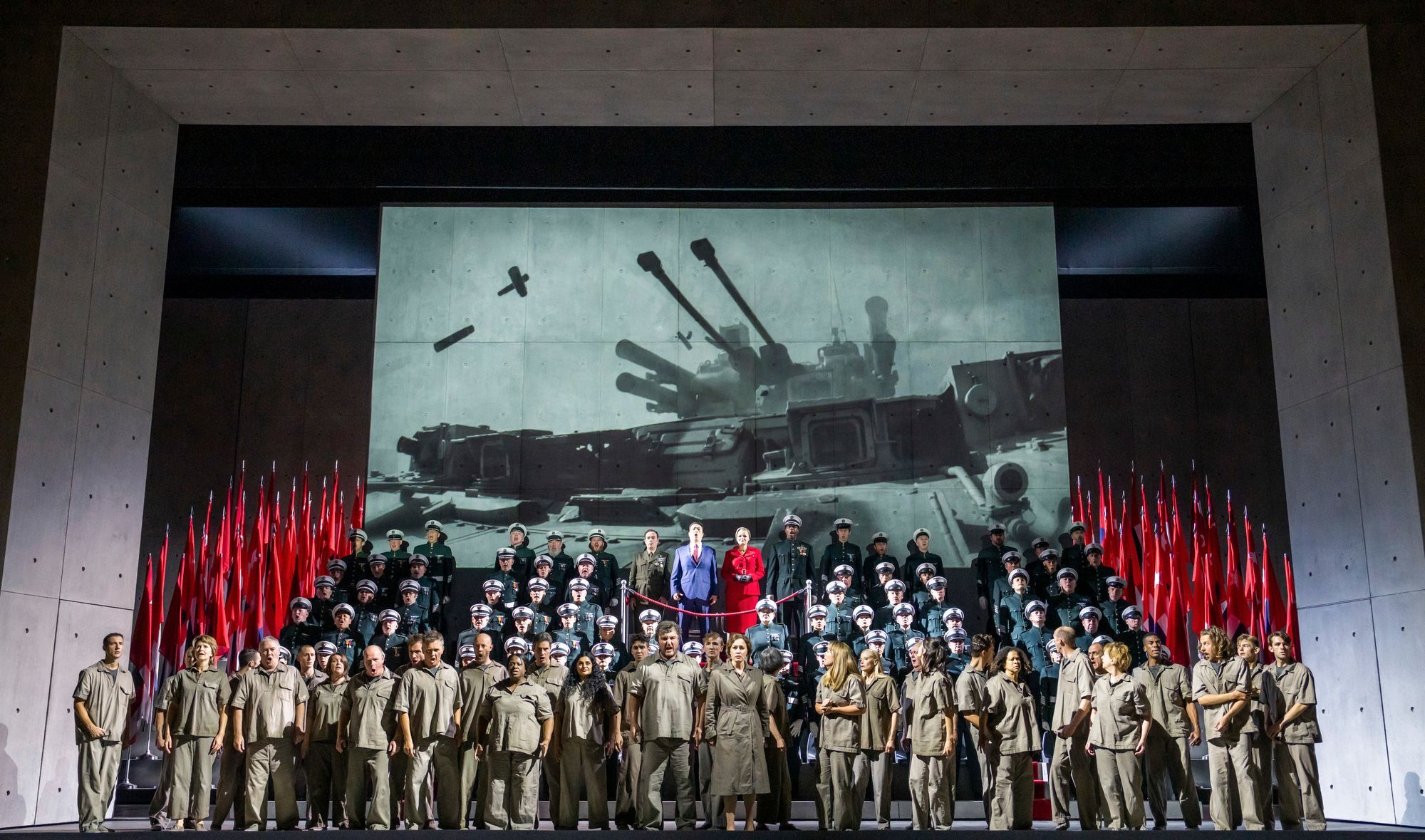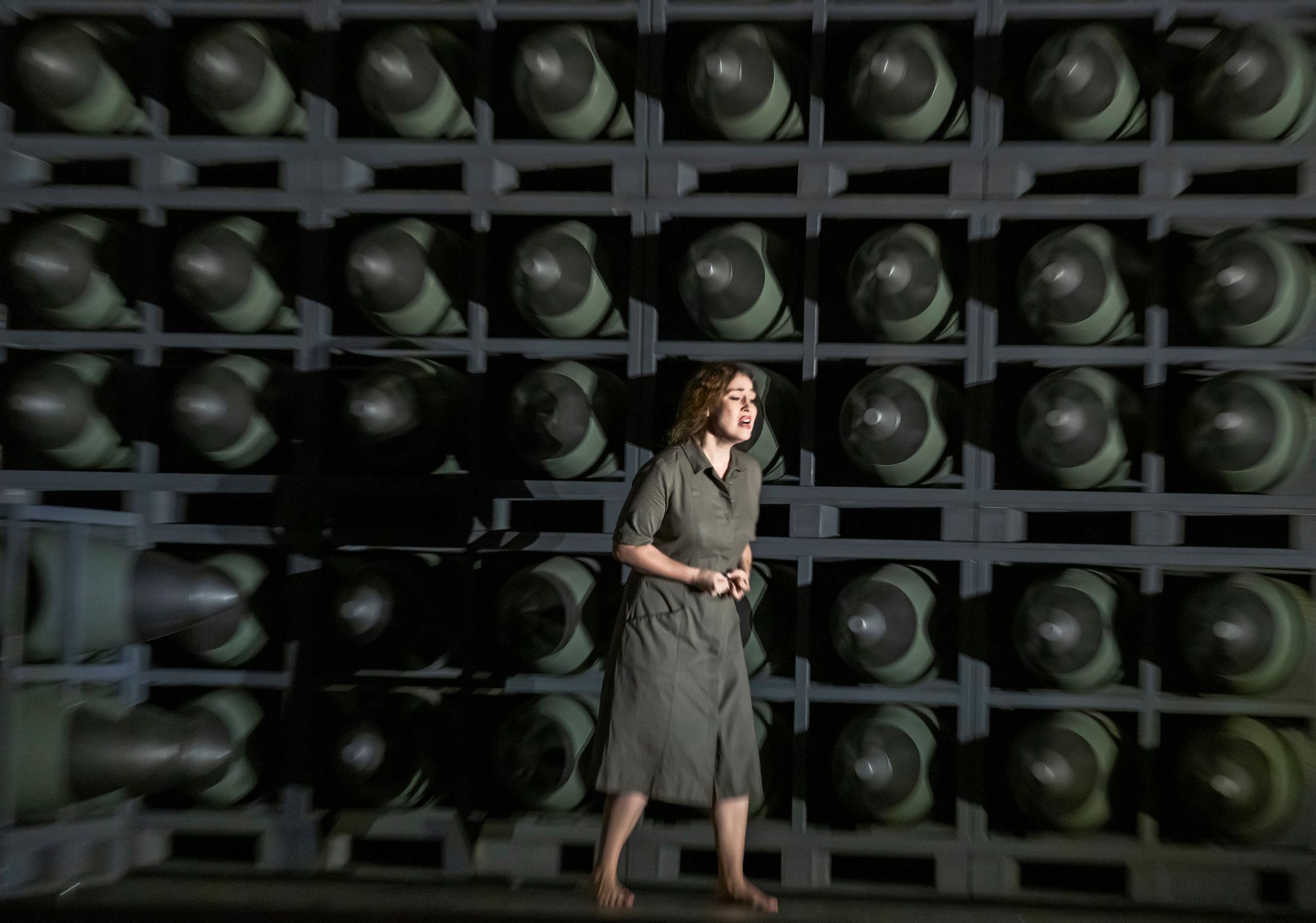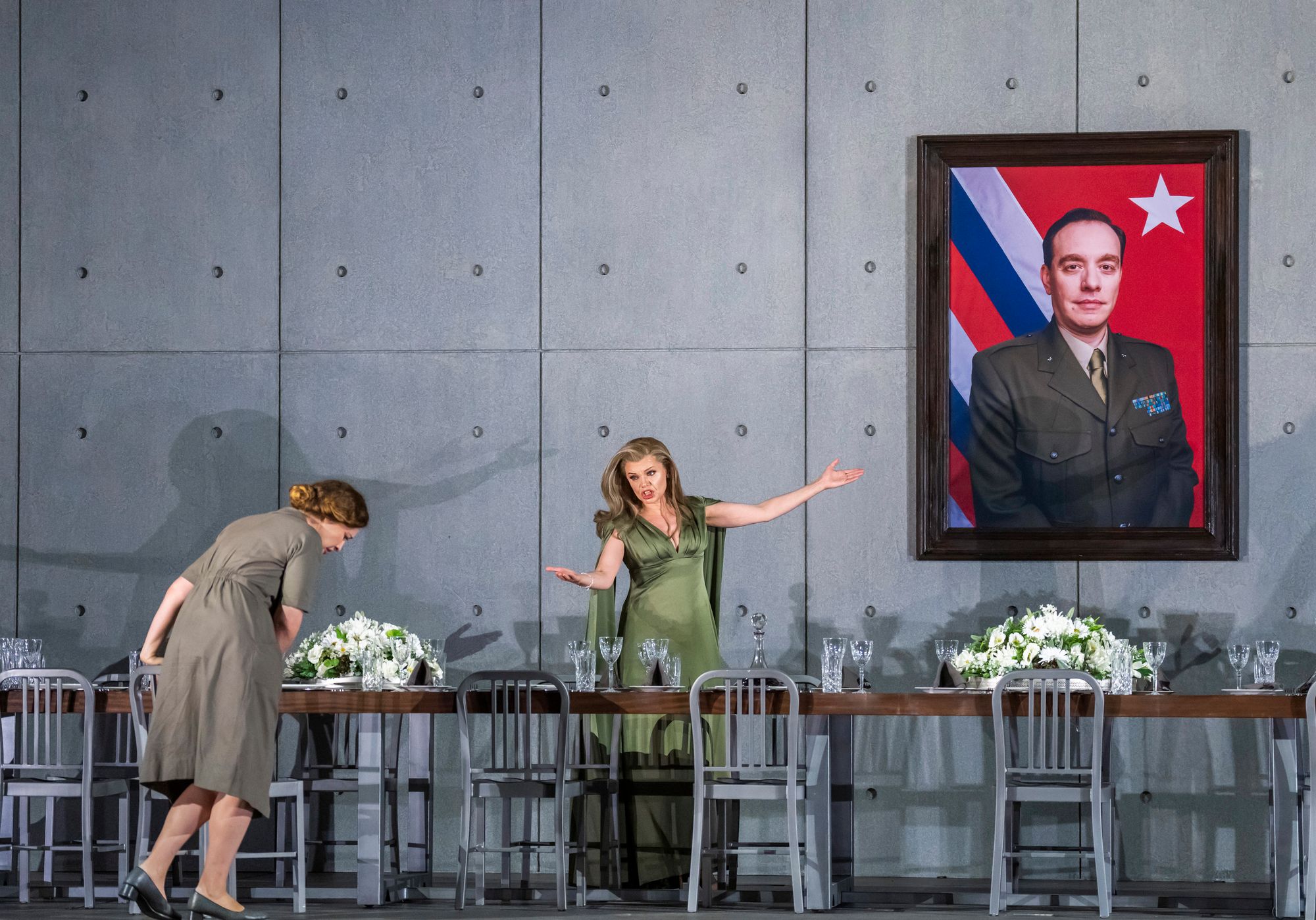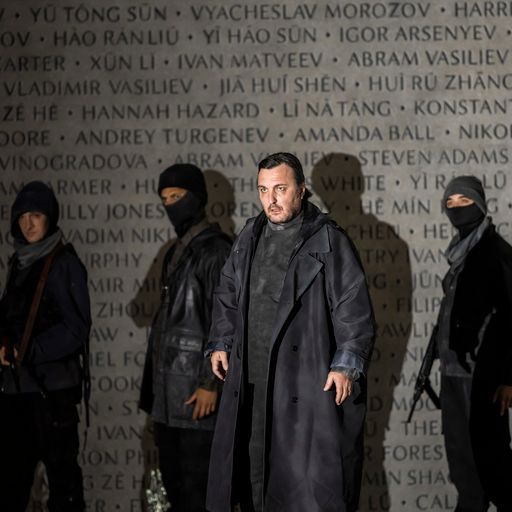A new production of Verdi's Aida at the Royal Opera House
There is a lot to celebrate here, vocally and instrumentally. The production itself will have to percolate ...

Verdi Aida Soloists; Chorus & Orchestra of the Royal Opera House. / Sir Antonio Pappano. Royal Opera House, Covent Garden, 25.10.2022
Production:
Director – Robert Carsen
Set Designer – Miriam Buether
Costume Designer – Annemarie Woods
Lighting Designers- Robert Carsen, Peter Van Praet
Choreographer – Rebecca Howell
Video Designer – Duncan McLean
Cast:
Aida – Elena Stikhina
Radamès - Francesco Meli
Amneris – Agniezka Rehlis
Amonasro – Ludovic Tézier
Ramfis – Solomon Howard
King of Egypt – In Sung Sim
Messenger - Andrès Presno
High Priestess – Francesca Chiejina
Robert Carsen’s new staging of Verdi’s Aida confounds expectation at every turn. Those who hoped for elephants were doomed from the off, these days, but Carsen takes Verdi’s most colourful, garish opera (at least in terms of spectacle) and transports it va Miriam Buether‘s to a nameless totalitarian state characterised by its brutalist gray walls and weapons. Greys abound; video (pretty much de rigeur in opera today) shows battle scenes, superbly constructed by Duncan McLean; the final scene is set in a military weapons silo, with the ammunition pointed squarely at the audience, threateningly (accusingly?). Politics tends to rub shoulders with love in Verdi – and how it does in this opera. The ballet scene is performed by troops. Here, it is the militia that is very much in charge.
So, Carsen’s Aida is de-Egyptised, and very prescient in military terms. There is a prevailing oppression to the staging. Art can and should make us uncomfortable, and this certainly does. But there is something of a contrast between the somewhat objective staging and the work going on in the pit: Pappano clearly adores this score, and the Prelude to the first act was even more lovingly sculpted than in his fine recording with Kaufmann and Harteros. Pappano (pardon the pun) marshalls the grand choral scenes impeccably (the army parade, for example), while finding real urgency in the orchestra which responds with its very best throughout. Pappano is a master Verdian, of that there is no doubt. Yet the control he wrought from his players in the Act I Prelude (and, in the proto-Minimalist Prelude to the final act) was utterly remarkable – they don ot sound like this for anyone else, currently, in my experience.
That contrast between stage appearance and put is certainly interesting, often fruitful in foregrounding the emotions we hear from the singers. It takes a fine cast to bring the characters alive, though, and this one included some fine contributions, not least Elena Stikhina’s emotionally powerful Aida. No doubting Stikhina’s wonderful technique and glorious voice; but it was the multitude of subtleties, both in acting and (especially) vocally that impressed. When she sang ‘O p[atria mia’ in the final act (in tandem with some superb contributions from the Principal Oboe of the Royal Opera orchestra), there was no doubting whatsoever the feelings were genuine.

Stikhina was complemented by the magnificent Amneris of Agnieszka Rehlis. She has a real depth to her voice which seems to reflect a soul with a core of steel – no surprise that Seen and Heard International has covered her Azucena Trovatore in a number of cities around Europe. She is simply magnificent, with a presence that matches the authority of her voice. Hers was a variegated Amneris, with a top dynamic end that is positively fearsome and which one always feels is there in potential, even in pianissimo.

Ludovic Tézier as Amonasro, the King of Ethiopia and Aida’s father, was another stand-out (he also sings on Pappano’s recording of this opera, while his Sony disc of Verdi arias is simply magnificent). Certainly, this was Verdi singing at its height. Solomon Howard was a strong-voiced Ramfis, High Priest/Commander, while In Sung Kim was an imposing King of Egypt.

Which, among the ‘stars,’ leaves only one singer, the Radamès, one of the great tenor roles. This was taken by Francesco Meli. He sang Radamès in Dresden in March 2022 in Christian Thielemann’s first Aida (review here). His is a subtle Radamès - Meli is in no way a heroic Verdi tenor, floating his high end to 'Celeste Aida' most effectively, but this was not the most multi-faceted Radamès, nor the strongest. I note he made a more positive impression in Dresden (sadly the availability of that live-stream is over to check!).
Among the smaller roles, Andrès Presno was a strong Messenger, confirming a promise seen, and heard, recently in the recent Jette Parker performance, not to mention a confident Roderigo Otello here in July.
There is a lot to celebrate here, vocally and instrumentally. The production itself will have to percolate – there is no doubt it will split critical opinion both initially and going forward. Relocation is not a problem – think of Stefan Herheim’s fascinating Glydebourne Pellèas, literally set at Glyndebourne (it recreates the Organ Room, for example. Carsen’s Aida certainly has something to say in terms of the continuity of forces through to today’s remarkable times (although it was presumably planned pre-Ukraine), but I wonder how profound that goes? Time (and revivals!) will tell.
Aida is in rep at Covent Garden from September 25 - October 12, 2022 and will be in cinemas live on Wednesday, October 12 with an “encore” on Sunday, Octovber 16.
